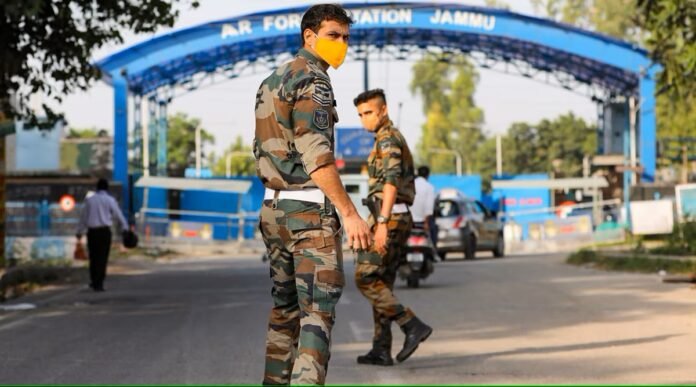In the wake of a deadly terror attack in Jammu and Kashmir’s Pahalgam region that left nine soldiers dead and several others injured, national carrier Air India has announced the operation of two additional flights from Srinagar to Delhi and Mumbai on Wednesday. The decision aims to assist in the safe and swift movement of civilians, tourists, and personnel amid heightened security concerns and growing travel demand following the incident.
Tragedy in the Valley
The terror attack, which took place late Monday, has sent shockwaves across the country. Militants ambushed an Indian Army convoy returning from a routine patrol near the tourist-heavy town of Pahalgam in South Kashmir. The attack was brutal and calculated, involving IED explosions followed by a hail of gunfire. While no group has officially claimed responsibility, intelligence agencies suspect it to be the handiwork of cross-border terror operatives.
As news of the attack spread, panic began to rise among tourists, students, and visiting professionals in the Valley. Many have been seen queueing at travel agencies and the Srinagar airport in hopes of securing flights out of the region.
Air India’s Rapid Response
In response to the growing demand and public anxiety, Air India announced late Tuesday that it would operate two additional flights—one each from Srinagar to Delhi and Mumbai—on Wednesday, April 24.
In a statement, the airline said, “In light of the current situation in Jammu and Kashmir, and to assist passengers wishing to leave Srinagar, Air India will operate two special flights tomorrow. We are coordinating with local authorities and ensuring all safety protocols are followed.”
The additional flights are expected to depart Srinagar in the late afternoon and early evening, offering flexibility to those seeking to leave immediately. The airline has also waived rescheduling charges for existing bookings from Srinagar between April 23 and April 26, showing solidarity with distressed travelers.
Airport Authorities on High Alert
Security at the Sheikh-ul-Alam International Airport in Srinagar has been significantly heightened following the attack. Central Reserve Police Force (CRPF) personnel and airport security teams have increased surveillance both inside the airport and along the road leading to it.
“We are taking every measure to ensure passenger safety. Additional screening, identity verification, and baggage checks have been put in place. While there may be minor delays, our priority is the security of every traveler,” said an airport spokesperson.
The Jammu and Kashmir Tourism Department has also issued an advisory for tourists currently in the valley, asking them to remain in contact with local administration and avoid sensitive zones until the situation stabilizes.
A Nervous Tourist Season
Spring typically marks the beginning of the tourist season in Kashmir, with thousands of visitors flocking to the region for its blooming tulip gardens, lush meadows, and tranquil mountain retreats. However, Monday’s attack has cast a long shadow over this year’s inflow.
Several travel agencies reported mass cancellations of bookings for the coming weeks. “We had a full slate of bookings for May, but almost 40% have already been cancelled in the last 24 hours,” said a tour operator in Srinagar.
Meanwhile, students from other states studying in colleges across Kashmir have reached out to their parents and educational institutions, seeking safe passage home. The Jammu and Kashmir administration has assured that all necessary assistance will be provided to facilitate their travel.
Government Monitoring Situation Closely
The Ministry of Civil Aviation is in regular contact with Air India and airport authorities to monitor the situation. Union Civil Aviation Minister Jyotiraditya Scindia tweeted, “Air India has taken prompt action to ensure safe travel for those needing to exit Srinagar. The government is fully alert and all stakeholders are working in coordination.”
As Kashmir grapples with another wave of unrest, the quick action by Air India offers a much-needed lifeline to many. In a region where the skies have too often been clouded by conflict, these extra flights are more than just a logistical step—they are a symbol of reassurance and a reminder that even in times of crisis, connectivity and compassion must soar.

